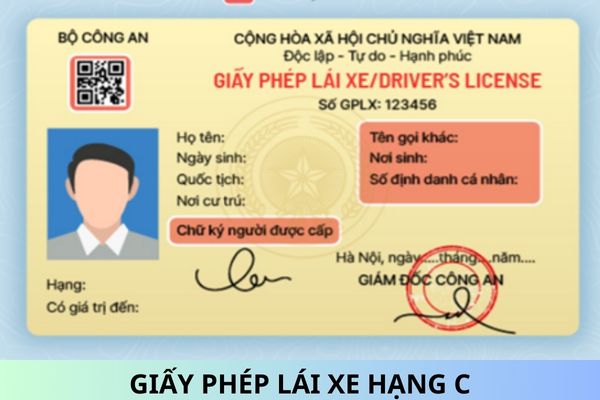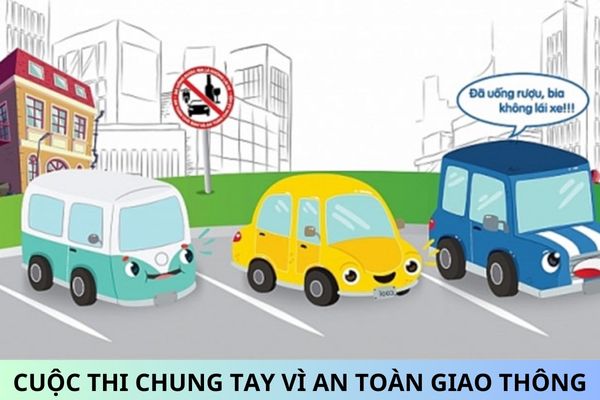Road Law 2024 stipulates which roads are managed according to the levels of administration? What acts are prohibited under the Road Law 2024?
Roadways Managed by Different Levels Include Which Types of Roads?
Pursuant to Clause 1 Article 8 of the Road Law 2024, roadways managed by different levels include: national highways, provincial roads, district roads, commune roads, village roads, urban roads, special-use roads and are identified as follows:
[1] National highways are roads connecting Hanoi Capital with provincial administrative centers; roads connecting provincial administrative centers; roads that hold essential positions for economic - social development, ensuring regional and area defense and security;
[2] Provincial roads are roads within a province connecting the provincial administrative center with the district administrative center; roads that hold essential positions for the economic - social development of the province;
[3] District roads are roads connecting the district administrative center with the commune administrative center, cluster of communes or neighboring district administrative centers; roads that hold essential positions for the economic - social development of the district;
[4] Commune roads are roads connecting the commune administrative center with villages or connecting with neighboring communes; roads that hold critical positions for the economic - social development of the commune;
[5] Village roads are roads within a village, connecting the village with agricultural, forestry production areas and other production, business establishments in the locality;
[6] Urban roads are roads within the administrative boundaries of urban areas, including: urban expressways, streets, alleys, and narrow paths, lanes in urban areas;
[7] Special-use roads are roads specifically serving the traffic needs of one or multiple agencies, organizations, individuals, and internal roads.

The Road Law 2024 defines which types of roads are managed by different levels and which behaviors are strictly prohibited? (Image from the Internet)
Which Behaviors are Prohibited under the Road Law 2024?
Pursuant to Article 7 of the Road Law 2024, the following behaviors are prohibited:
Prohibited Behaviors
Destroying road infrastructure; exploiting, using road infrastructure against the provisions of law.
Illegally connecting to main roads, branch roads; unauthorized dismantling, moving or altering road works.
Encroaching, occupying, using, or building illegally within the protection scope of road infrastructure.
...
Thus, the behaviors prohibited under the Road Law 2024 include:
- Destroying road infrastructure; exploiting, using road infrastructure against the provisions of law.- Illegally connecting to main roads, branch roads; unauthorized dismantling, moving or altering road works.- Encroaching, occupying, using, or building illegally within the protection scope of road infrastructure.- Installing, dismantling, moving, adjusting, obstructing road signals illegally; attaching, hanging, installing contents unrelated to the meaning, purpose of the road signal or altering the road signal.- Operating transportation business with automobiles or motorized four-wheeled vehicles without a transportation business license as prescribed by law or operating not in accordance with the license.- Establishing passenger pick-up and drop-off points, loading and unloading goods against the provisions of law.
Land Dedicated to Road Infrastructure Includes Which Types of Land?
Pursuant to Article 13 of the Road Law 2024, the land dedicated to road infrastructure includes:
Land Dedicated to Road Infrastructure
1. Land dedicated to road infrastructure includes:
a) Road land includes the land for constructing road works and the land for protecting and maintaining roads;
b) Land for building bus stations; parking lots; stop points, parking points; rest stops; auxiliary works serving road operations;
c) Road safety corridors.
Management and use of land dedicated to road infrastructure must comply with the legal provisions on land, planning, urban planning, construction, this Law and other relevant legal regulations.
In cases where natural positioning requires drainage from road infrastructure works to pass through other properties, owners of properties with drainage systems must provide an appropriate drainage passage, without obstructing or hindering the drainage system.
Road managers and users must minimize damage to property owners when constructing, installing drainage systems; if damage occurs, compensation must be made according to legal provisions.
Thus, the land dedicated to road infrastructure includes:
- Road land which includes the land for constructing road works and the land for protecting and maintaining roads.- Land for building bus stations; parking lots; stop points, parking points; rest stops; auxiliary works serving road operations.- Road safety corridors.
See the latest updates list here: >>>
Decision 09/2024/QD-TTg on file, procedure for approval of the credit limit exceeding the limit
Decree 80/2024/ND-CP on the mechanism for direct electricity sales
From July 01, 2024, what is the monthly preferential allowance amount for type B war invalids?
From July 01, 2024, what is the monthly allowance for sick soldiers?










